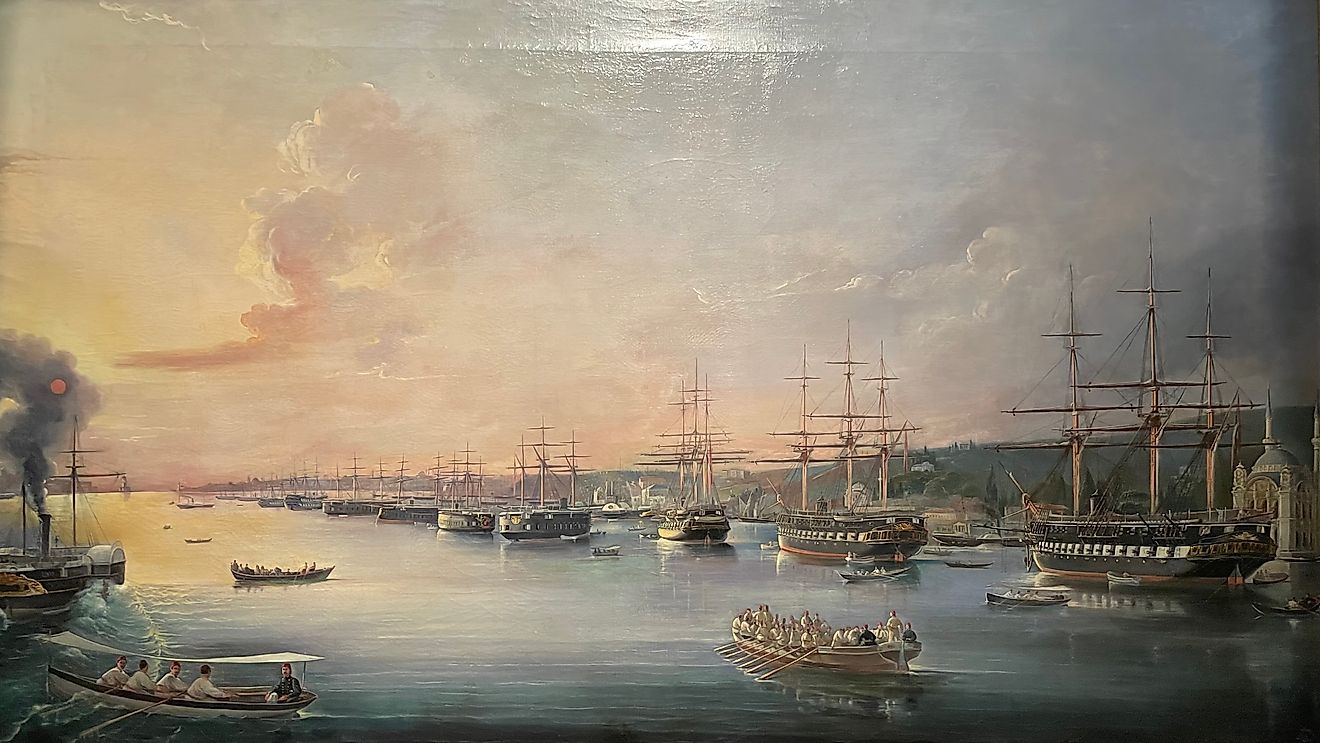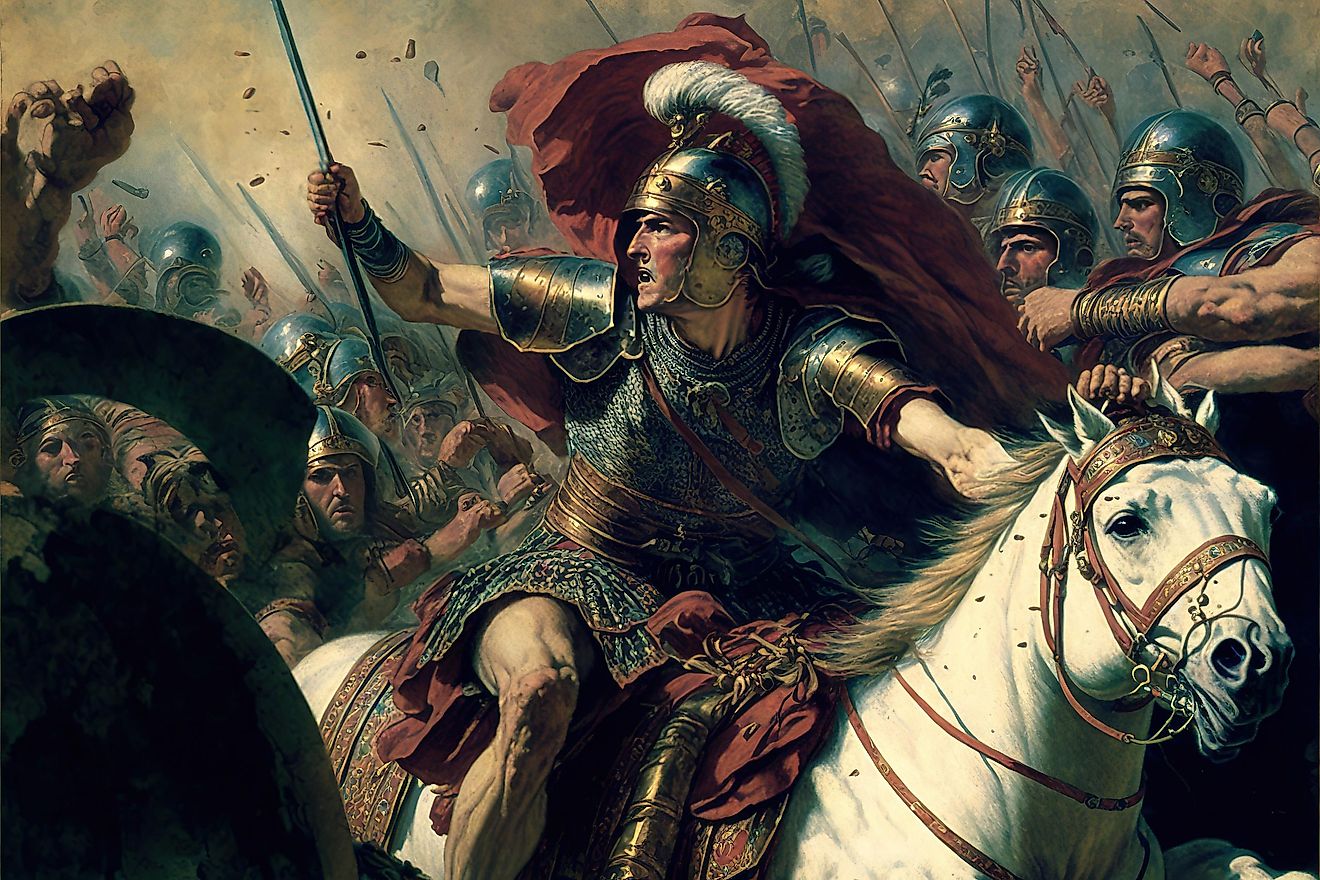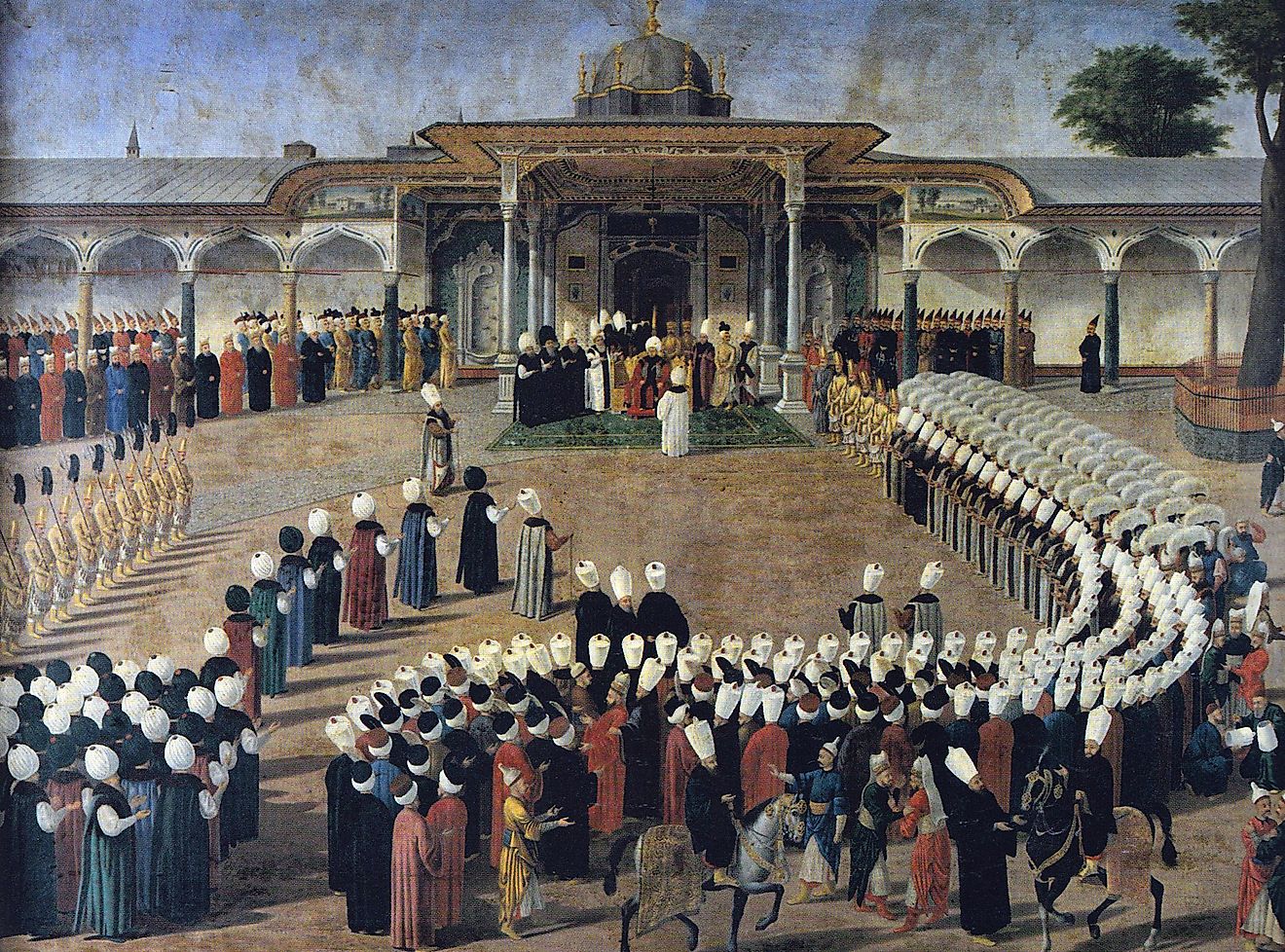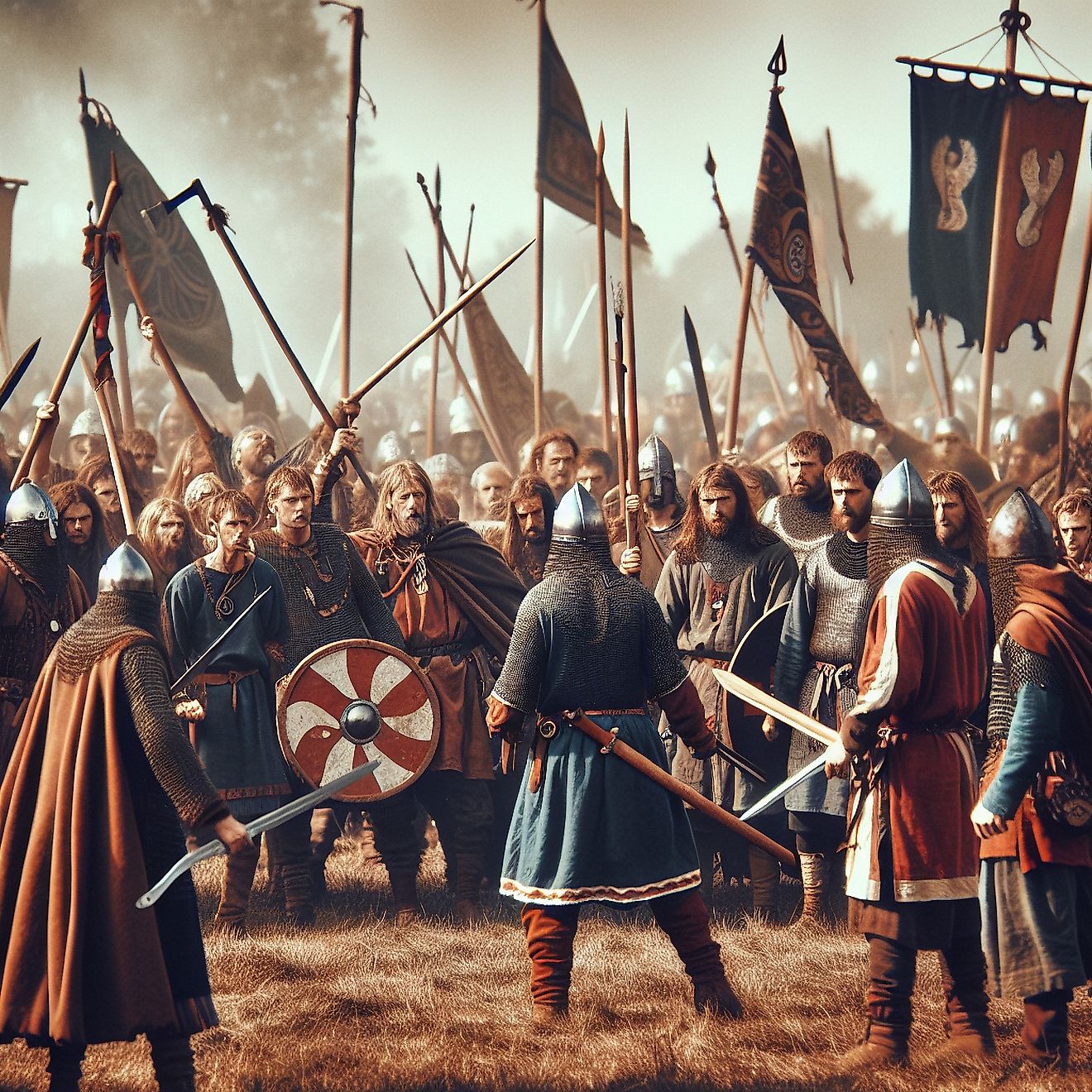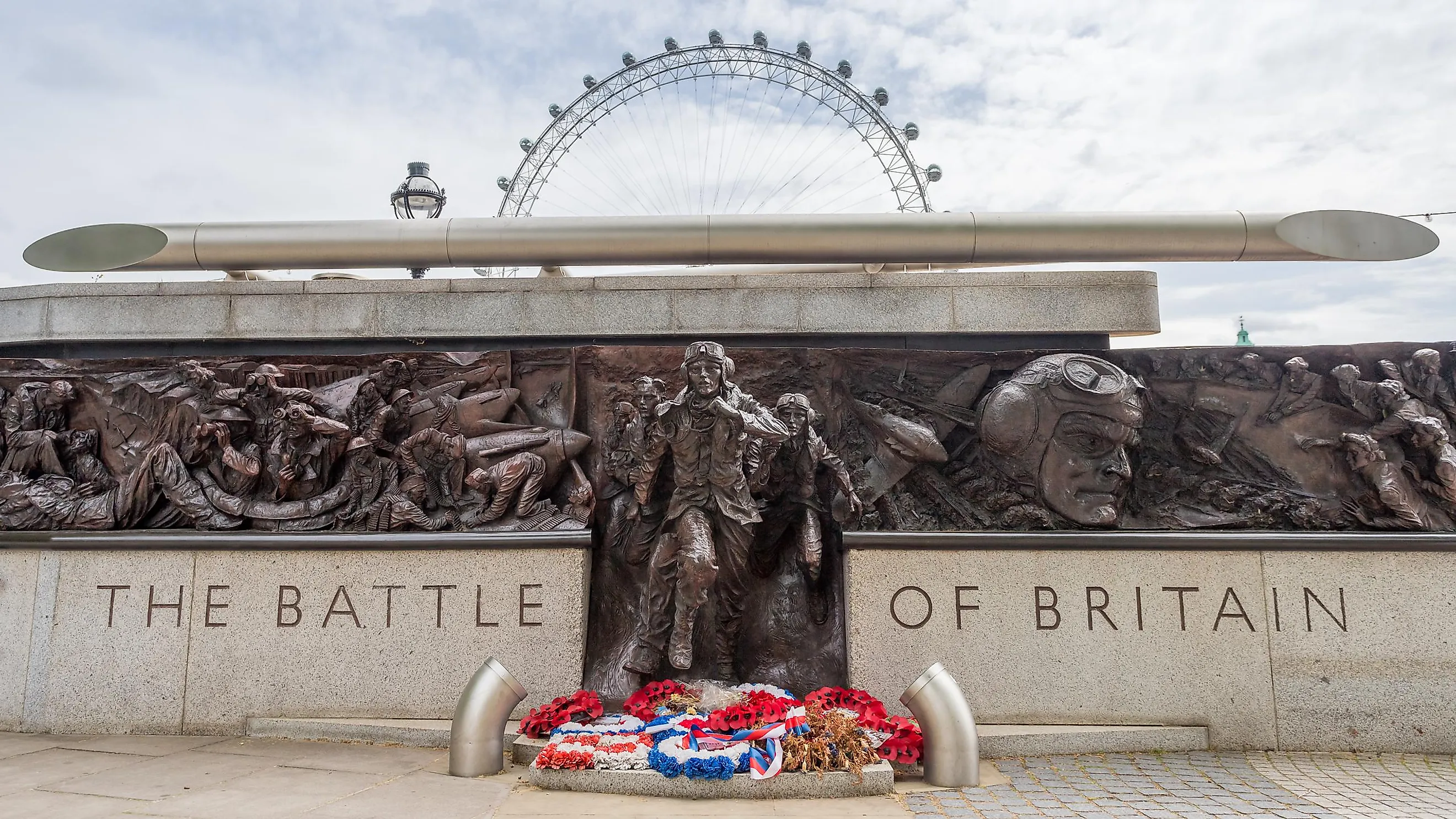
10 Reasons Why Germany Lost The Battle Of Britian
The Battle of Britain was a crucial chapter in the Allies' survival during World War II. By the summer of 1940, the ferocious German military had already ravaged many Western and Central European nations and was turning its sights on Britain. A British defeat would have helped consolidate Hitler's control of the continent, but the scrappy Royal Air Force turned back the Nazi war machine during this pivotal battle. Here are ten reasons why the Luftwaffe was unsuccessful during the Battle of Britain.
Germany's Underfunded Luftwaffe Intelligence Services
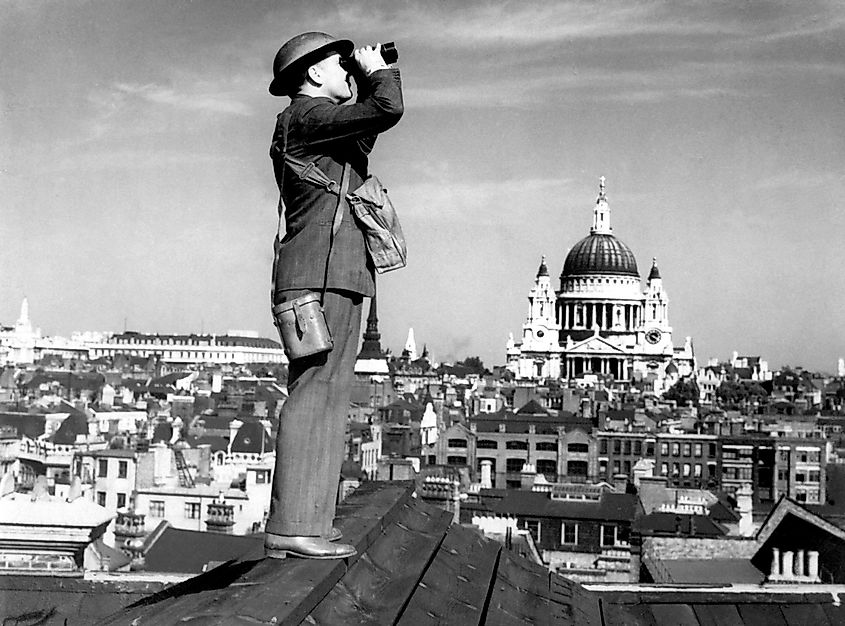
Failures of German intelligence were apparent from the Battle of Britain onward. Despite having the world's largest air force, the Luftwaffe's intelligence arm was far too small to provide the necessary information to launch a successful air campaign. Led by Colonel Josef Schmid, the Luftwaffe intelligence department suffered from understaffing and underfunding. Additionally, the Luftwaffe intelligence service was under the command of operations staff who did not always include input from intelligence officers when preparing reports. These officers were considered by their commanders to be of limited usefulness, and as a result, ended up being staffed by low-quality personnel. One of the failures of the German intelligence agencies was that information often passed vertically and not horizontally. Only for the upper echelons of the Nazi high command was a complete assessment possible. All of the Nazi intelligence agencies competed for resources with each other and seldom was cooperation possible.
Study Blue
In preparation for the Battle of Britain, the battle plan was informed by an intelligence assessment known as "Study Blue." Drafted by the Luftwaffe's intelligence agency, the report demonstrates the effects of understaffing an information-gathering apparatus. Intelligence reports are typically compiled using official documents captured from the enemy, radio intercepts, and interrogations. Study Blue was compiled using maps, handbooks, and newspaper articles ordered from a London bookshop. Using commercially available resources for intelligence gathering and sources for widespread civilian consumption that did not require military specificity meant the report's usefulness was dubious at best. The result was that parked enemy aircraft were routinely misidentified. British fighter bases were designated as bomber bases and vice versa. The German Luftwaffe was practically going in blind every time they took off across the English Channel, and the lack of reliable intelligence provided to them led in part to the losses they suffered.
British Industrial Capacity
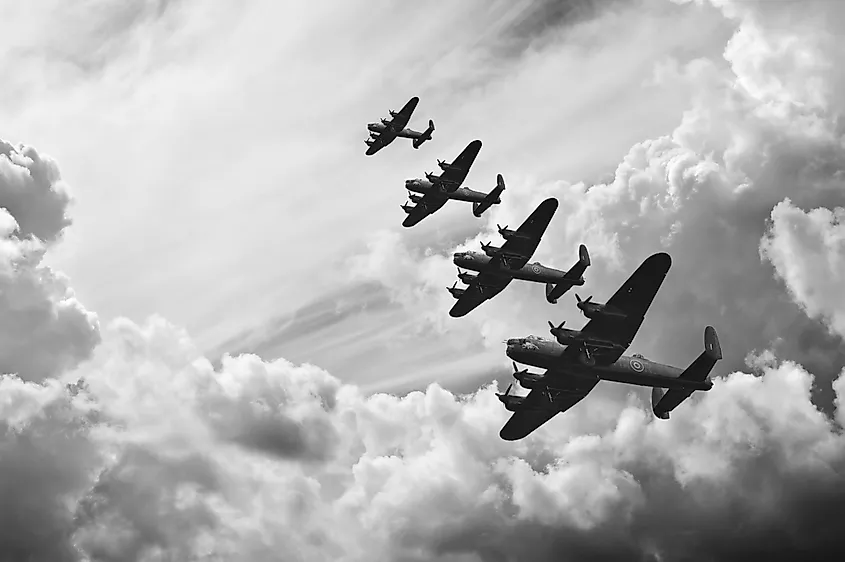
By the spring of 1939, British fighter aircraft output began to approach German levels. The British would eclipse their German counterparts in output by 1940 in part due to Goring's unwise decision to remove Erhard Milch as head of the Luftwaffe's technical department and replace him with Ernest Udet, a talented fighter pilot who otherwise lacked the expertise necessary to properly fulfill his role as an administrator. Unlike the Germans, who faced the prospect of a land war from the outset, the British had the liberty of sheltering on their island, diverting critical resources to the development of a fearsome airborne fighting force.
Underestimating The British Air Force
The Luftwaffe believed the RAF was much weaker than it actually was, contributing to their defeat. Despite having pioneered air defense, the German Air Force did not recognize the significance of the British Air Defence on the German Luftwaffe's effectiveness. The RAF's radar system allowed them to conserve their limited resources, maximizing effectiveness and increasing their ability to fend off German bombers. Their early detection capabilities meant the RAF could conserve their fighters' fuel reserves until the last possible moment instead of conducting endless patrols. As a result, the RAF outshot the Luftwaffe 2:1 in the first five weeks of the battle. The Luftwaffe also believed the RAF only had 200 fighters and 500 bombers at its disposal. Although they were correct about the amount of RAF bombers, there were over 600 frontline aircraft at the disposal of British Fighter Command.
Luftwaffe Forced To Grow Too Quickly
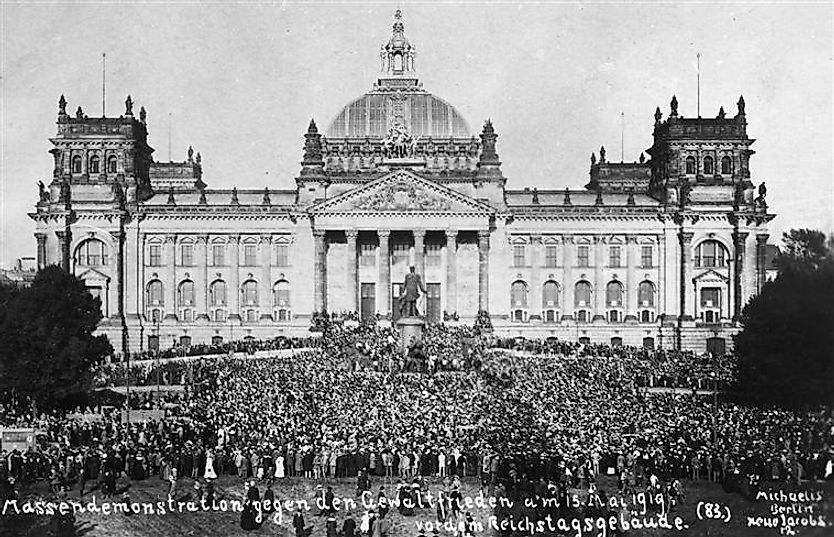
The Treaty of Versailles declared Germany was forbidden from developing an air force following their defeat in WWI. Instead of developing military aircraft, Germany's aircraft manufacturers instead worked to build commercial airplanes. The result was that by 1930, the German firm Lufthansa was larger than its British and French counterparts combined. The expertise refined over this period by its commercial firms would prove useful once Germany began to rearm, but none of these designs were combat-tested. In 1933, Hitler ordered the development of the Luftwaffe, but the development of doctrine was left to army officers with little understanding of air power. As a result, the German air force was conceived primarily as a tool to support the Wehrmacht, making it ill-suited for sorties against Britain. This made the German army a force to be reckoned with in Spain but cemented a strategy that would be ineffective against Britain. Independent planning specifically for an air campaign was impossible since the Luftwaffe's brain trust was focused on close support for the army.
Nazi Airplanes Were Poorly Suited To The Job
The aircraft of the German Air Force was developed to serve a close-support role. These planes included fighters and dive-bombers meant to enhance army operations in an anti-infantry role, as seen in Spain. Against the British, the Luftwaffe's task changed. The Germans needed to gut Britain's industrial capacity, requiring significantly larger bomb payloads, but the heavily laden German bombers proved vulnerable to RAF Spitfires and Hurricanes. Though the Nazis eventually added fighter escorts to their bombing runs, these fighters were not meant for long-range travel and often did not have enough fuel for sustained airtime, limiting their efficacy.
German Doctrine Was Too Focused On Offense
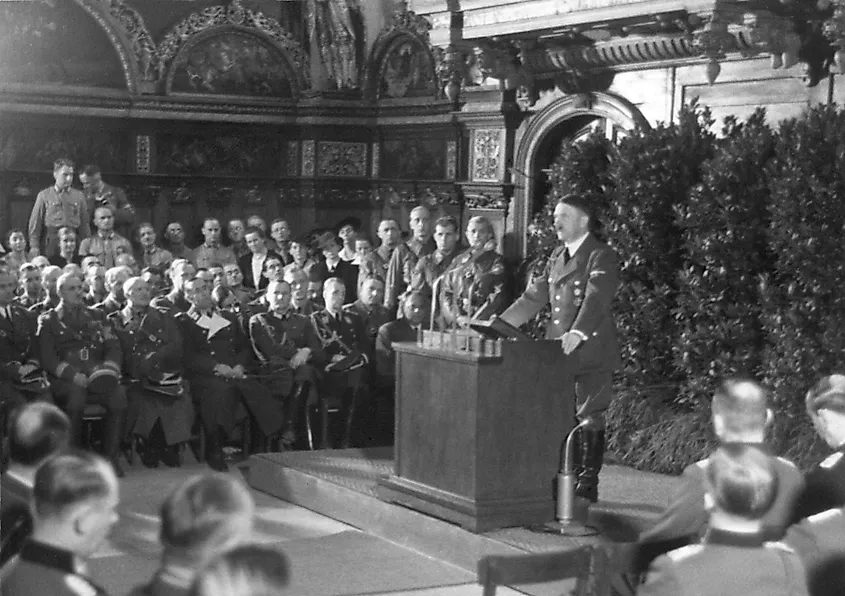
The rigidity of the Nazi high command was a key reason for its defeat. As in many such cases with the German military, early successes served to entrench strategies and thinking that would prove ineffective later. An inability to adapt to changing battlefield conditions led to failures at key junctures, such as in the Battle of Britain. The use of combined arms maneuver warfare known as Blitzkrieg proved incredibly successful in Central and Western Europe, leading the Nazis to believe that overwhelming offense was the key to victory. This line of thinking extended to the Luftwaffe, which did not consider its enemy's ability to counterattack. Instead, the German air force relied on destroying the RAF's fighters in dogfights and its resources through bombing rather as a means of discouraging a riposte. Additionally, this caused the Germans to neglect the importance of their opponents' defensive measures. British air defense, including radar, went nearly untouched by the Germans, who were singularly focused on destroying offensive materials such as fighters, bombers, and infrastructure.
Germany's Economic Problems
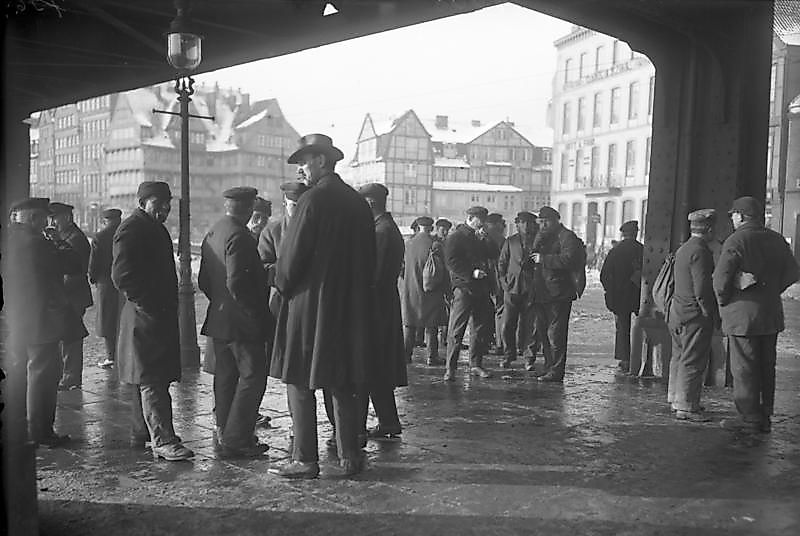
The challenges faced by Germany during the rearmament were considerably different than those faced by the British and the Americans. The United States possessed a bounty of natural resources to draw upon and was well-off economically, having been shielded from the ravages of WWI thanks to the protection of the Atlantic Ocean. Germany, however, was limited to one natural resource: coal. All other materials for the proper functioning of the economy in general and the war effort in particular required import. Oil, rubber, aluminum, and more needed to be secured for the German war machine to begin its destructive advance but were subject to blockade. Germany was particularly dependent on petroleum, but by June of 1938, supplies on hand were only a quarter of what was needed by mobilization requirements. A lack of foreign exchange reserves also hampered rearmament efforts as it had very few ways to pay for imports. A worldwide depression beginning in 1930 severely diminished the value of German exports, leading to a dwindling supply of foreign reserves. These constraints led to an insufficient amount of raw materials during German rearmament, leading to a bombing force that was smaller than necessary to achieve victory.
Hitler Was An Army Man
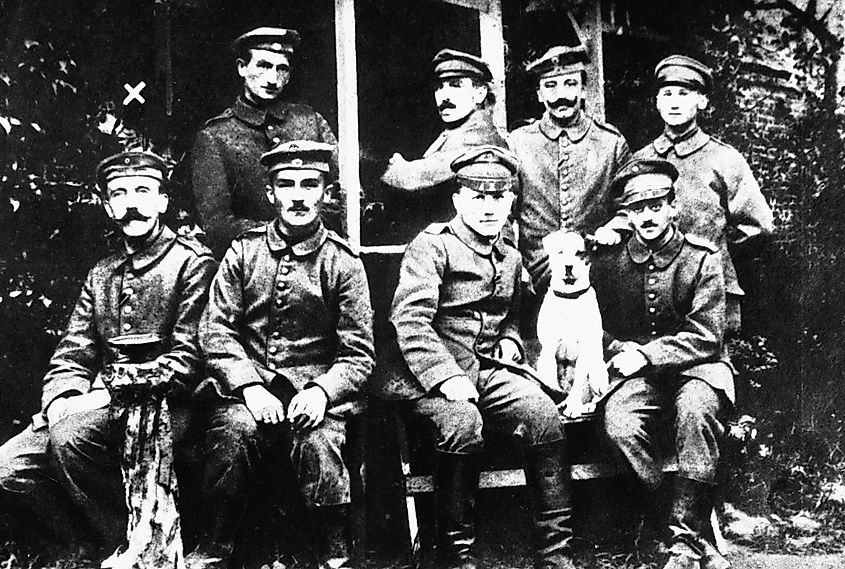
Like many officers charged with building the Luftwaffe, Hitler came from a ground forces background and had an unsophisticated view of properly utilizing air power. Despite being headed by Goring himself, German military leadership largely viewed the Luftwaffe as less important. Only a few Luftwaffe liaison officers were even stationed at the Nazi Supreme Headquarters. Those that were typically held low ranks and had little influence over the war's direction. The Luftwaffe's planning staff were often left out of the loop in terms of greater Nazi war aims and not given adequate time to meet the demands placed before them.
Bad News Was Buried
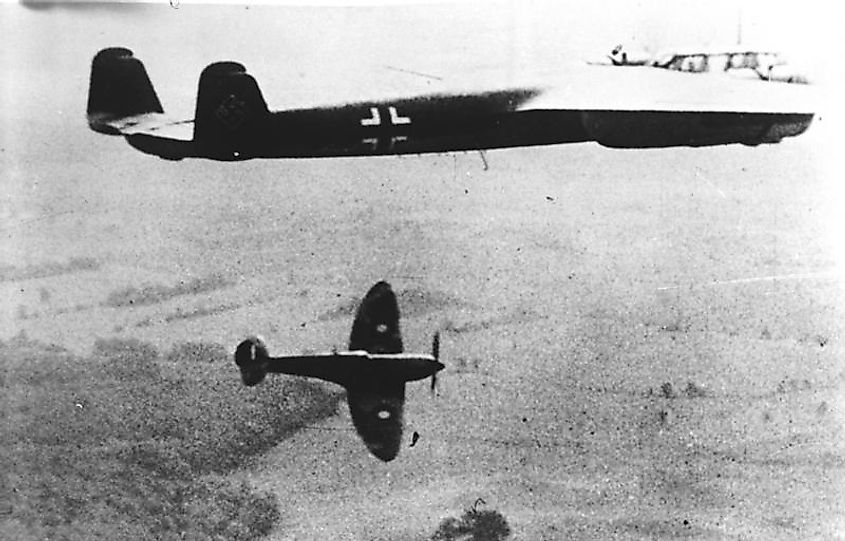
Nobody wanted to be the bearer of bad news to the German high command. Colonel Schmid, head of the Luftwaffe's intelligence arm, was in particular known as someone who edited his intelligence briefings to be more pleasing. Naturally, this has disastrous consequences. The fault cannot be entirely attributed to Schmid, however, as Hitler, Hermann Goring, who headed the Luftwaffe, and Hans Jeschonnek all had a distaste for unfavorable reports. This fact led to a culture within the German Air Force where bad news was quashed. Conversely, the good news was then viewed with distrust by operations staff. The political structure of the German intelligence community was rife with backbiting and hostility, leading to a climate where operational planning was seriously hampered.
Germany's defeat during the Battle of Britain seemed impossible at the war's outset. American and British officials echoed the sentiments of the German high command that a Nazi victory was assured. In retrospect, examination of the historical record makes this assertion seem almost comical. Enormous dysfunctions within the German military apparatus seriously impeded their effectiveness, while a lack of flexibility doomed them to repeat their mistakes. The success of British air power proved to be a crucial victory in turning the tide of WWII.

